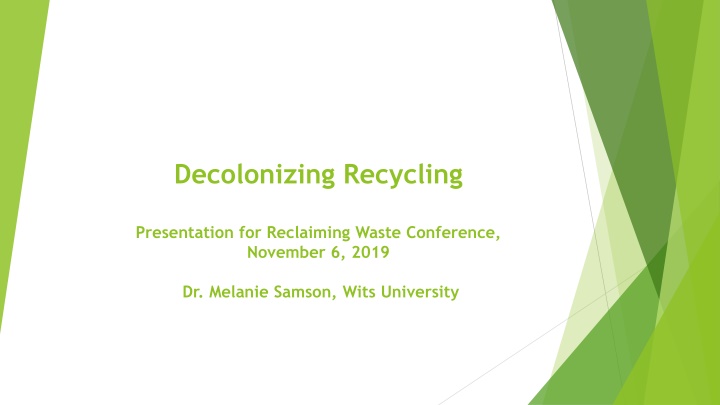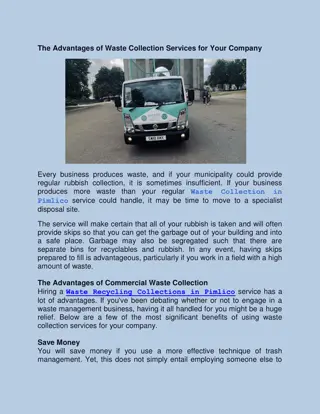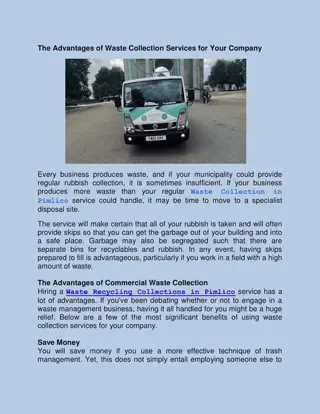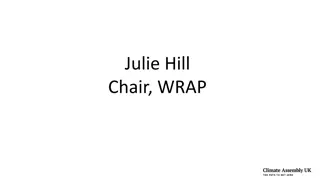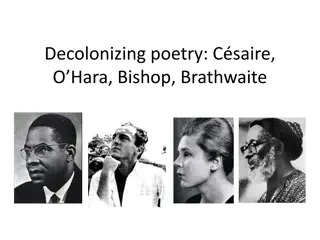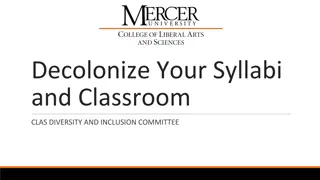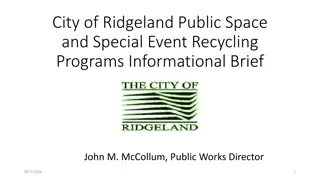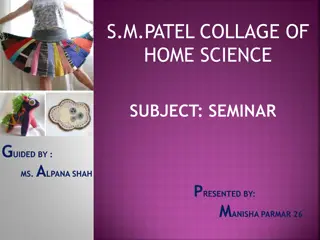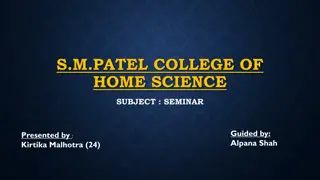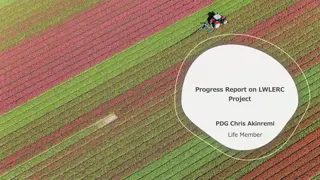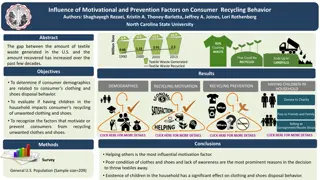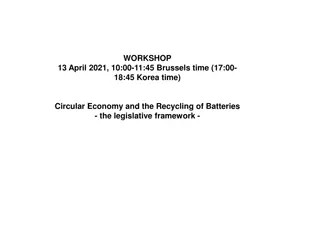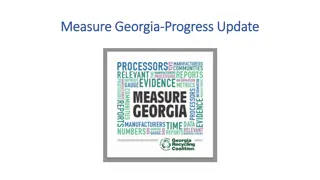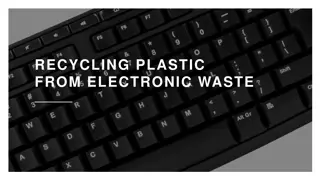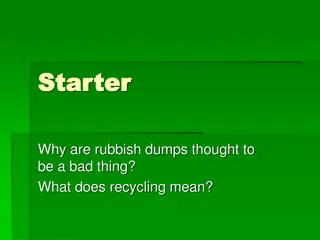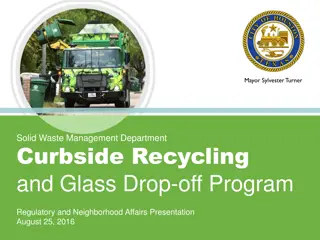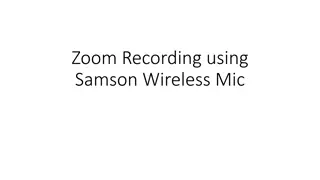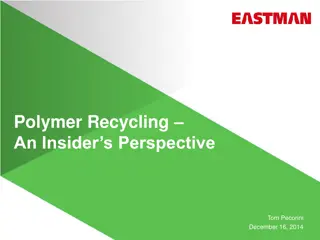Decolonizing Recycling in Waste Management: A Critical Analysis
Dr. Melanie Samson from Wits University presented on the decolonization of recycling practices at the Reclaiming Waste Conference. The discussion focused on challenging colonial assumptions in waste management, including the impact of municipal interventions on informal waste pickers. The presentation highlighted the need to integrate waste pickers into the recycling system to value their contribution and promote sustainability.
Download Presentation

Please find below an Image/Link to download the presentation.
The content on the website is provided AS IS for your information and personal use only. It may not be sold, licensed, or shared on other websites without obtaining consent from the author.If you encounter any issues during the download, it is possible that the publisher has removed the file from their server.
You are allowed to download the files provided on this website for personal or commercial use, subject to the condition that they are used lawfully. All files are the property of their respective owners.
The content on the website is provided AS IS for your information and personal use only. It may not be sold, licensed, or shared on other websites without obtaining consent from the author.
E N D
Presentation Transcript
Decolonizing Recycling Presentation for Reclaiming Waste Conference, November 6, 2019 Dr. Melanie Samson, Wits University
Just like colonialism We started recycling way back in the mid-nineties. Why does the municipality have to show up represented by its executives and say we have to entirely take over ukubenza [your work] ?......The problem is the municipality that wants to snatch the food out of our mouths What are they going to do for us if they stop us from recycling or take it away from us as theirs? This is truly stealing, it s not different from colonialism. There is no way to justify this because it is wrong in all angles Reuben Mbabisa Manifesto, July 13, 2017
Overview 1. Separation outside source (SoS) in Johannesburg 2. Contracting private companies to do separation at source (S@S) as colonialization 3. What does it mean to decolonize recycling
4 Colonial assumptions 1. Colonies Mapped as empty or wasteful 2. Construction of race and human waste 3. Paternalism 4. Racial Capitalism
Definition of integration Waste picker integration is the creation of an officially planned recycling system that values and improves the present role of waste pickers, builds on the strengths of their informal system to collect and revalue materials, and includes waste pickers as key partners in its design, implementation, evaluation and revision. Waste picker integration includes the integration of waste pickers work, as well as the political, economic, social, legal and environmental integration of waste pickers.
Waste Picker Integration Principles Recognition, respect and redress 1. Waste pickers know best what they want 2. Meaningful engagement 3. Build on what exists 4. Cost effective, increased diversion 5. Evidence-based 6. Enabling environment 7. Improved conditions and income 8. Compensation for services and savings 9. 10. Holistic integration
Decolonisation takes struggle Guideline is just a guideline Creates opening, but doesn t shift power Still inserted in top-down governance, contracting state, class interests Not just a municipal service nexus of production, destruction, and revalorization of commodities Transformation of the industry But is focusing on deracializing the existing industry Rogers role of recycling in staving off meaningful change Waste as a renewable resource, circular
Reclaimers, Just Transition and Degrowth Reclaimers need to be present so are included in just transition, but transition to what? Circular, environmentally destructive, exploitative capitalist project? Or degrowth Imagining and forging a radically different future Move beyond contributions to recycling, to contribution to environmentally, economically, socially, culturally just world
Thank you Dr Melanie Samson, University of the Witwatersrand melanie.samson@wits.ac.za
